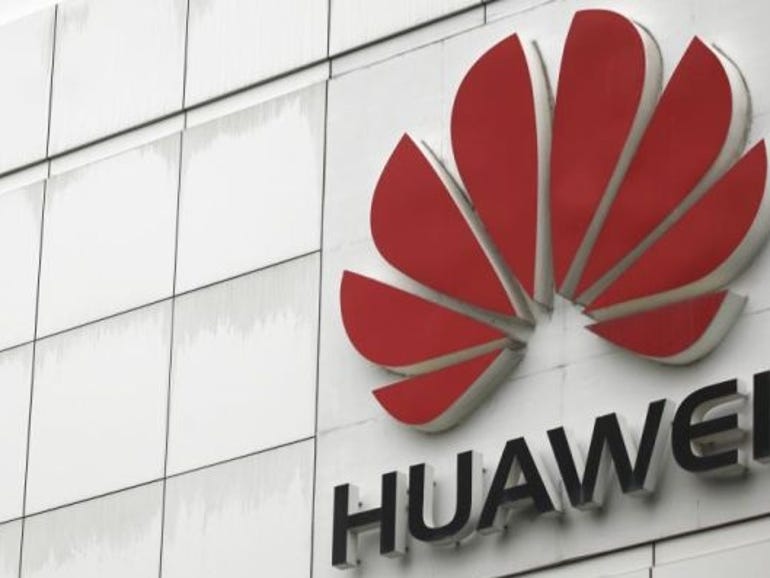
Huawei Technologies will continue to diversify its product focus as it looks to buffer a decline in its smartphone sales, with its other connected devices including laptops and smart TVs seeing strong growth this past year. The Chinese tech giant also believes its wide product portfolio will stack well against its local peers, such as Alibaba and Tencent–all of which are looking to grow their footprint in the Southeast Asian region.
Huawei reported sluggish performance in its recent earnings report, where its annual operating profit fell for the first time in over five years to 72.5 billion yuan ($11.09 billion) in 2020. China also was the only region it saw revenue climb by 15.4% to 585 billion yuan, with all other regions, which included Asia-Pacific, EMEA, and Americas, seeing dips in revenue of between 8.7% and almost 25%.
Huawei attributed the loss to a dip in its smartphone sales, which were impacted by ongoing US export sanctions that blocked access to Google’s Android ecosystem. US export bans also cut the Chinese vendor’s access to core chipsets, which Huawei said disrupted its supply chain.
It pushed the vendor to diversify its chip suppliers as well as its product focus. At its earnings briefing, Huawei’s rotating chairman Ken Hu said the vendor would look to drive focus on the company’s other connected devices, such as smart TVs, laptops, and smart watches.
Pointing to the company’s “1+8+N” strategy, in which “8” referred to its range of connected devices, Hu said revenue from these eight devices had buffered the impact from a dip in its smartphone sales.
In fact, its “8+N” business had clocked a 65% year-on-year increase in sales last year, chalking up 891.4 billion yuan ($136.38 billion) in revenue. “N” comprised third-party Internet of Things (IoT) devices that connected via Huawei’s HiLink platform and file-sharing technologies. “1” referred to Huawei’s smartphone products.
Hu said the vendor would be working to introduce more hardware products, software and services, as it looked to build an ecosystem that extended beyond its smartphone.
In an interview with ZDNet, Huawei’s Asia-Pacific vice president Jay Chen was unable to provide any update on the US sanctions, but noted that these had far-reaching impact on trust across the entire global value chain.
Chen noted that revenue and market share of US companies also would be adversely affected in the long-term.
In spite of the pressures on its chip supply, he said Huawei would continue to introduce new handsets and look to maintain its market position. He reiterated the company’s aim to diversify its chip partners and supply chain.
And despite the challenging past year, the vendor remained bullish about its growth potential across the wider Asia-Pacific, outside of China. Chen cited accelerated digital transformation efforts in the region as a key driver and significant growth potential.
The population was also big and digital acceptance high, which placed the region as an important and strategic market for Huawei, he said.
In fact, outside of China, Asia-Pacific was the fastest-growing region for Huawei’s cloud business, according to Hunter Shao, Huawei Cloud’s Asia-Pacific vice president of industry development, who noted that the vendor saw its revenue climb three-fold year-on-year. Shao added that it was targeting to be amongst the top three cloud providers worldwide within the next three years.
He said Huawei offered a wide range of products and services that spanned devices, edge computing, network equipment, and software, which bolstered its cloud gameplay.
The vendor also had long history in Asia-Pacific that stretched two decades, during which it served local carriers and telecommunications service providers across the various markets. It also worked with enterprise customers that tapped its infrastructure portfolio for more than 10 years.
Asked how it was working to address security concerns that continued to persist today, Chen stressed that security was a key consideration across Huawei’s entire product range, whether it was cloud or 5G equipment. It also was embedded in all its internal processes and product design, he said.
He noted that the vendor adhered to industry standards with regards to network security, which was critical to establish trust. He pointed to GSMA’s Network Equipment Security Assurance Scheme (NESAS) as one such standard that market players and stakeholders should adopt.
NESAS is a voluntary initiative introduced to provide a security enhancement program that focused on mobile network infrastructure equipment. It encompasses equipment designed to facilitate functions defined by 3GPP (3rd Generation Partnership Project), and deployed by mobile network operators on their networks. Specifically, it comprises security assessments of vendor development and product lifecycle processes as well as security evaluations of network products.
Chen encouraged global participation of NESAS or it would be difficult to resolve any questions about network security. He also urged for geopolitics to be left out of discussions concerning network security.
He added that Huawei was the first vendor globally that was willing to sign an agreement stating there was no backdoor in its equipment.
To further tap cloud potential in the region, Shao said Huawei would continue to work with partners to deliver services across various sectors including smart cities, unmanned stores, and autonomous vehicles. The vendor also would further build out its cloud coverage in Asia-Pacific, where it currently had four local POPs (points of presence) including Singapore and Hong Kong.
Asked about competition from its Chinese peers such as Xiaomi, Tencent, and Alibaba–the latter two of which were also eyeing cloud growth in this region–Chen again pointed to Huawei’s diverse product portfolio that included software and services as well as its “strong hardware DNA” as key competitive advantages.
He added that the vendor had built up a “very mature ecosystem” in its international business over the last two decades, with teams in every local market.
“So we’re confident against the competition and believe we can play well,” he said.
RELATED COVERAGE
Source : ZDnet